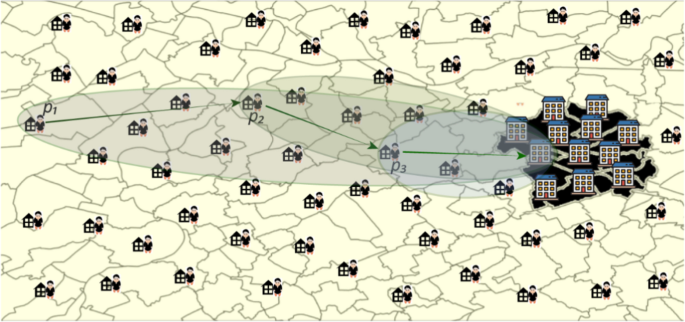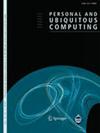A negotiation model of individual matching and zonal-based travel behavior in carpooling
Q1 Social Sciences
引用次数: 0
Abstract
Abstract Carpooling is a sustainable and ecologically acceptable transportation mode. Individuals commonly engage in coordination and negotiation processes to find matching partners and typically modify their schedules to enable cooperation. Mutual cooperation between carpooling individuals plays an important role in executing trips. Through cooperation, participants can achieve challenging agreements effectively in a repetitive manner. This paper presents a negotiation mechanism that can match individuals for carpooling using organization and agent-based concepts. It describes a matching model and a carpooling social network. It studies several aspects of multi-zonal individual behavior to identify groups of carpooling candidates. The carpooling social network is simulated on an ongoing basis for each of the following carpooling activities: interaction, negotiation, and trip execution. The interaction process enables communication between individuals within carpooling social groups in order to activate the negotiation process. During the negotiation process, participants typically modify their schedules to support cooperation by considering their personal preferences and constraints. Negotiation leads to matching of individuals based on trip start times, driver selection, detour duration, and carpool group pickup and dropoff sequences. Trip start times are established on travel, social, financial, and schedule-related factors. The carpoolers’ pickup and dropoff sequences that are feasible for an optimal carpool group are projected using specific scoring methods. Carpooling community candidates are recognized via outcomes projected using the FEATHERS activity–based model. The framework is implemented through the Janus multi-agent system.

拼车中个体匹配与区域出行行为的协商模型
拼车是一种可持续的、生态可接受的交通方式。个人通常参与协调和谈判过程,以寻找匹配的合作伙伴,并通常修改他们的时间表以实现合作。拼车个体之间的相互配合在执行行程中起着重要作用。通过合作,参与者可以以重复的方式有效地达成具有挑战性的协议。本文利用基于组织和智能体的概念,提出了一种匹配个体拼车的协商机制。它描述了一个匹配模型和一个拼车社交网络。研究了多区域个体行为的几个方面,以确定拼车候选者群体。拼车社交网络是在持续的基础上模拟以下每一个拼车活动:互动、谈判和行程执行。这种互动过程使得拼车社会群体中的个体之间能够进行交流,从而激活协商过程。在谈判过程中,参与者通常会根据自己的个人偏好和限制来调整自己的日程安排,以支持合作。协商导致基于出行开始时间、司机选择、绕行时间和拼车组接送顺序的个人匹配。旅行开始时间取决于旅行、社会、经济和日程安排等因素。采用特定的计分方法,对最优拼车组可行的拼车者上下车顺序进行了预测。拼车社区候选人通过使用FEATHERS基于活动的模型预测的结果来识别。该框架通过Janus多智能体系统实现。
本文章由计算机程序翻译,如有差异,请以英文原文为准。
求助全文
约1分钟内获得全文
求助全文
来源期刊

Personal and Ubiquitous Computing
工程技术-电信学
CiteScore
6.60
自引率
0.00%
发文量
35
审稿时长
6-12 weeks
期刊介绍:
Personal and Ubiquitous Computing publishes peer-reviewed multidisciplinary research on personal and ubiquitous technologies and services. The journal provides a global perspective on new developments in research in areas including user experience for advanced digital technologies, the Internet of Things, big data, social technologies and mobile and wearable devices.
 求助内容:
求助内容: 应助结果提醒方式:
应助结果提醒方式:


